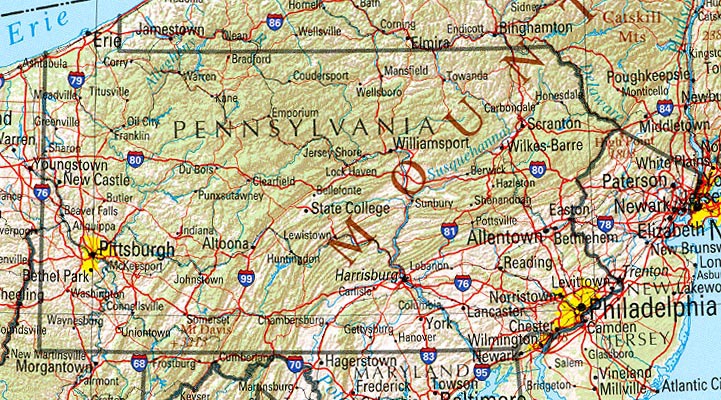






Online Gambling, Sports Betting Needed As Pennsylvania Casino Market StagnatesState Casino Revenue Flat Through May |
|
|

Pennsylvania is home to the nation’s second largest commercial casino market, but gaming revenues were flat through May, according to figures released this week by state regulators.
The Keystone State could kick off both online casinos and sports betting later this year in order to grow the market, but hurdles remain. According to the state figures, the 12 brick-and-mortar casinos won $278.9 million from patrons during May, less than half a percentage point better than May 2017. Through the first five months of this year, the casinos won $1.37 billion, slightly more than half a percentage point better than during the same period a year prior, according to data compiled by UNLV’s Center for Gaming Research.
Pennsylvania is currently home to more than 1,200 table games and more than 25,000 slot machines. Under Pennsylvania law, the state receives a huge cut of the industry’s slot winnings. Based off of slot revenue of $204 million last month, Pennsylvania collected $106.4 million in taxes. That’s more than a 50 percent. The largest portion of that money is used for property tax reduction to homeowners. The state sees itself as a true partner with the casino industry.
The years-long stagnation of Pennsylvania’s casino market prompted lawmakers last fall to pass a sweeping gambling reform package that paved the way for online casinos and sports gambling, pending the outcome of the Supreme Court case. In mid-May, the highest court in the land ruled to give states the right to legalize sports books, whether online or brick-and-stick.
 Poker will more than likely be among the games available when Pennsylvania launches online casinos. Rake last month from the state’s 225 live poker tables was $4.7 million, down 7.8 percent from $5.1 million in May 2017. May’s dip outpaced the decline witnessed through April. Through the first four months of 2018, Pennsylvania’s poker tables generated $19.41 million in revenue for the casinos, down 4.7 percent compared to the $20.37 million generated during the first third of 2017
Poker will more than likely be among the games available when Pennsylvania launches online casinos. Rake last month from the state’s 225 live poker tables was $4.7 million, down 7.8 percent from $5.1 million in May 2017. May’s dip outpaced the decline witnessed through April. Through the first four months of 2018, Pennsylvania’s poker tables generated $19.41 million in revenue for the casinos, down 4.7 percent compared to the $20.37 million generated during the first third of 2017
Fortunately for the game of poker, it thrives on liquidity in cyberspace and Pennsylvania could eventually team up with Nevada, New Jersey and Delaware to grow the online poker player pool. There would be around 26 million people exposed to online poker under a player-sharing arrangement between those four states. During the poker boom of the mid-2000s, internet play was shown to increase live poker’s popularity.
Despite the current gambling plateau in Pennsylvania, the state’s existing gambling dens have so far dragged their feet on internet betting. According to OnlinePokerReport, the Pennsylvania Gaming Control Board had yet to receive any applications for online gaming as of last week. The Board said it would start accepting them in April. Under the state’s online gambling law, casinos have the option to apply for licenses for specific online gambling offerings after a 90-day window, rather than seek a more expensive license for a full suite of products. The online slots tax rate is also a matter of contention with the industry and reportedly has cooled some enthusiasm toward internet betting. During the years-long online casino debate, Pennsylvania was eyeing a regulated online betting market of $300 million per year.
 Tax rate issues are plaguing sports betting as well, according to Philly.com. Firms in the sports betting industry reportedly aren’t attracted to the current 36 percent tax that would be applied to revenue from sports betting. The regulatory landscape pertaining to sports betting is still being sorted out on the state level, as well as on the federal level.
Tax rate issues are plaguing sports betting as well, according to Philly.com. Firms in the sports betting industry reportedly aren’t attracted to the current 36 percent tax that would be applied to revenue from sports betting. The regulatory landscape pertaining to sports betting is still being sorted out on the state level, as well as on the federal level.
The Keystone State is looking to capture a portion of a nationwide market for sports betting that is expected to grow to $4b-$6b within the next five years. Americans are said to bet about $150 billion illegally each year.
